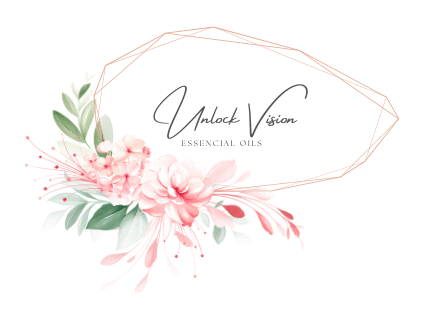Why Potency Matters: The Secret Behind Effective Essential Oils
Essential oils are ubiquitous these days. You find them at health stores, cosmetics, and even in cleaning sprays. Most of them boldly announce 100% pure. But there’s a little-known secret that most beginners wouldn’t understand. Purity is not the key to why essential oils are so effective. What actually matters is potency.
Without potency, even the finest oil may have a lovely scent but do nothing for your well-being. Let’s dive into what potency is? Why is it the true game-saver? And how can you recognize genuinely effective oils prior to purchasing?
What Is Potency in Essential Oils?
Potency refers to the intensity and concentration of the plant constituents in each drop of oil. It’s like the living essence of the plant contained in a jar.
Two lavender oils can both claim to be “pure,” yet one will soothe your thoughts in minutes while the other is weak. What makes the difference is potency. More potent oils have more active substances. It is the substances that deliver relaxation or mental focus.
So when you read “100% pure,” keep in mind. It doesn’t necessarily translate to “highly effective.”
Why Potency Matters More Than Purity
Here’s the reality. Purity informs you that nothing artificial was introduced. That is a plus point. But purity does not inform you about how strong the oil is.
A weak pure peppermint oil will not do anything for headaches or energy. Conversely, a strong peppermint oil provides instant cooling relief.
This is the reason that professional aromatherapists, natural health professionals, and wellness coaches emphasize potency testing. Potency-less oils are without therapeutic value.
How Potent Oils Work on Your Body
Essential oils aren’t simply fragrances. They act by touching your brain and body. Inhaled, the active molecules go into your limbic system. This is the area of your brain that manages emotions and memory. That’s why oils can soothe stress or energize so quickly.
Used on skin (with proper dilution), strong oils penetrate more deeply into tissues. Tea tree oil with very potent antibacterial ingredients fights acne, for instance. Eucalyptus oil with high potency makes sinuses clear better.
If the oil is not strong enough, these advantages are dissipated. You may catch a nice scent, but no actual outcome.
Potency vs. Dilution: The Hidden Problem
One of the largest problems in the essential oil business is camouflaged dilution. Many companies dilute their oils with low-cost carrier oils in order to save money. The package may yet read “100% natural” or even “therapeutic grade.” But within, the strength is diluted.
This is why prices can be deceptive. An inexpensive oil may be watered down or of poor quality. A high-quality strong oil is more expensive because it is from the best plants, at the best time of harvesting, and distilled meticulously.
How to Know Your Oil Is Potent
Below are easy ways you can check potency as a consumer:
Check sourcing: Source oils from their places of origin. French lavender, Oman frankincense, or Indian peppermint tend to be more potent.
Read GC/MS reports: A few reputable brands release third-party lab reports. These indicate the precise chemical composition of the oil. More active ingredients are equal to higher potency.
Trust your senses: A good oil smells rich and assertive. An inferior one might smell stale or evaporate rapidly.
Watch the outcomes: If your lavender gets you to sleep or your lemon oil brightens your mood quickly, it’s likely potent.
Competitors and Industry Standards
Oils emphasize purity and testing. However, the true distinction lies in the amount of potency their oils provide. Some appeal to multi-level marketing claims. Others rely on “therapeutic grade” terms that are not regulated.
Sophisticated consumers must see past buzzwords. What one needs is actual testing and tangible results.
Why Potency Makes Oils Safer
A second advantage of potency is safety. You might assume that stronger always means riskier. Actually, though, poor-quality diluted oils are more likely to be problematic. They could contain sneaky fillers that are irritating to the skin. Clean potent oils, when utilized with adequate dilution, are even safer because you have no idea what’s inside.
For instance, a dilute peppermint oil will make you want to use more drops. That poses a danger of overuse. A strong oil will only require a small amount to work well.
Potency and Daily Wellness
That’s the way potency really affects everyday life:
Improve sleep: Strong lavender oil calms your body and mind quicker.
Improved skin: Tea tree oil only functions when the antibacterial agents are strong.
Stress relief: Strong bergamot or frankincense oils cause quicker emotional changes.
Energy boost: Strong peppermint oil gives you a wake-up in minutes.
How to Select Potent Essential Oils
Oils can be so confusing. You can check
Seek transparency: Companies disclose sourcing and lab reports tend to be more potent.
Steer clear of bargain bins: Genuine potent oils are pricier, because the plants and distillation process are high-quality.
Opt for small batches: Oils produced by small farms or sustainable growers tend to have higher concentration.
Test first before you believe: Try one oil such as lavender or peppermint. Observe if it provides immediate results.
Key Takeaways
- Potency is the true secret to successful essential oils.
- Pure doesn’t necessarily mean strong. Potency refers to the potency of plant compounds.
- Weak or diluted oils have a pleasant smell but little to offer.
- Strong oils give quick action in sleep, stress, energy, and skin care.
- Always verify sourcing, lab reports, and in-the-field outcomes before purchasing.
- Once you know potency, the real healing potential of essential oils is yours.
